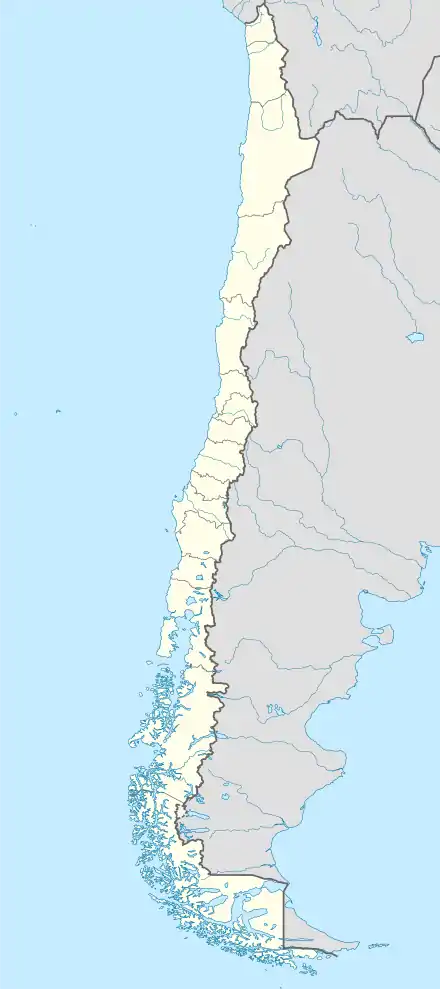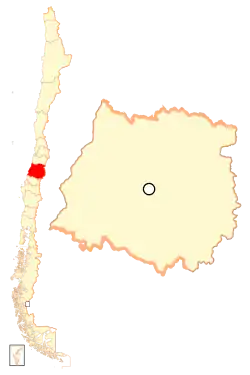Sagrada Familia, Chile
Sagrada Familia (Spanish meaning "Holy Family") is a Chilean town and commune in Curicó Province, Maule Region.
Sagrada Familia | |
|---|---|
 Coat of arms  Map of Sagrada Familia commune in the Maule Region  Sagrada Familia Location in Chile | |
| Coordinates (city): 35°00′S 71°23′W | |
| Country | Chile |
| Region | Maule |
| Province | Curicó |
| Government | |
| • Type | Municipality |
| • Alcalde | Francisco Meléndez Rojas (PS) |
| Area | |
| • Total | 548.8 km2 (211.9 sq mi) |
| Elevation | 143 m (469 ft) |
| Population (2012 Census)[2] | |
| • Total | 17,569 |
| • Density | 32/km2 (83/sq mi) |
| • Urban | 5,080 |
| • Rural | 12,439 |
| Sex | |
| • Men | 9,108 |
| • Women | 8,411 |
| Time zone | UTC-4 (CLT [3]) |
| • Summer (DST) | UTC-3 (CLST [4]) |
| Area code(s) | 56 + 75 |
| Website | Municipality of Sagrada Familia |
Demographics
According to the 2002 census of the National Statistics Institute, Sagrada Familia spans an area of 548.8 km2 (212 sq mi) and has 17,519 inhabitants (9,108 men and 8,411 women). Of these, 5,080 (29%) lived in urban areas and 12,439 (71%) in rural areas. The population grew by 3.7% (625 persons) between the 1992 and 2002 censuses.[2]
Administration
As a commune, Sagrada Familia is a third-level administrative division of Chile administered by a municipal council, headed by an alcalde who is directly elected every four years. The 2008-2012 alcalde is Francisco Meléndez Rojas (PS).[1]
Within the electoral divisions of Chile, Sagrada Familia is represented in the Chamber of Deputies by Roberto León (PDC) and Celso Morales (UDI) as part of the 36th electoral district, (together with Curicó, Teno, Romeral, Molina, Hualañé, Licantén, Vichuquén and Rauco). The commune is represented in the Senate by Juan Antonio Coloma Correa (UDI) and Andrés Zaldívar Larraín (PDC) as part of the 10th senatorial constituency (Maule-North).
References
- "Municipality of Sagrada Familia" (in Spanish). Retrieved 20 January 2011.
- "National Statistics Institute" (in Spanish). Retrieved 20 January 2010.
- "Chile Time". WorldTimeZones.org. Archived from the original on 2007-09-11. Retrieved 2010-07-28.
- "Chile Summer Time". WorldTimeZones.org. Archived from the original on 2007-09-11. Retrieved 2010-07-28.
External links
- (in Spanish) Municipality of Sagrada Familia
